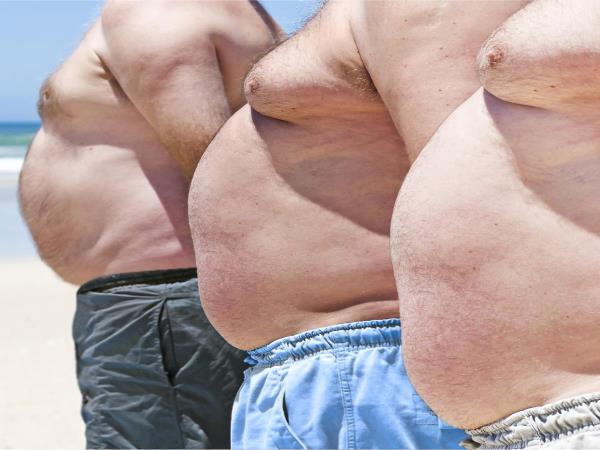Let us tell you: there are key changes that happen in our bodies during the summer. If we are not aware of them, we cannot control them. And thus, the kilograms quietly pile up.
That's why we invite you to look together at the three main reasons this happens. We promise - no Latin terms, no preaching, but with a touch of old folk wisdom and verified numbers.
- Summer food is more deceptive than it seems
When the smell of kebabs, popcorn, or ice cream with three scoops wafts in the air, you think to yourself - I've been out in the sun all day, and I even swam! But let's look at the numbers. An average scoop of ice cream has around 150 calories, but we rarely stop at one. Two glasses of soda? Around 300 calories, and empty - without vitamins or minerals.
Now, think about it: an afternoon picnic with drinks, some sweets, a bit of wine, and a few grilled meat pieces can quickly amount to more than 1500 calories - that's almost a full-day requirement for a sedentary adult woman. And if you are on vacation, these situations happen day after day. But the body doesn't forget.
Additionally, we tend to drink more alcohol in the summer. A glass of beer has about 150 calories, a glass of wine even more - around 200. If we relax in the evening with friends and have two or three drinks, we quickly cross the limit.
And even though we think we'll burn those calories with more exercise, reality often shows a different picture...
- We don't move enough in the heat
In the summer, it's often too hot to move a lot. Even though the days are longer, we tend to avoid physical exertion due to the heat. In temperatures above 30 degrees Celsius, the body uses a lot of energy just to cool down, and we become more lethargic and passive. According to a study by the American Heart Association, the average person's physical activity decreases by 30% in the summer, which is significant.
You might think that swimming or a stroll on the beach is enough, but even then, we often sit or lie down. We may walk more in the summer - it's true - but walking around the city, with intermittent ice creams, is not the same as intensive exercise.
Our ancestors worked from dawn to dusk during the harvest season. But today, we live differently. Air conditioning keeps us indoors, and exercise is shifted to early mornings or evenings - but in the evenings, we prefer going out with friends. And in the morning... it's hard to get out of bed, right?
- Summer affects sleep - and metabolism suffers too
Sleep is one of the most powerful natural remedies we have. However, we tend to sleep worse in the summer. Why is that?
In summer, it doesn't cool down enough at night, especially in cities. If the bedroom is above 21 {-15696}C, the body struggles to enter deep sleep. Add mosquitoes, nightlife, traveling to different time zones, and a disrupted rhythm - and you get a perfect recipe for fatigue.
Researchers from Chicago found that just 5 consecutive nights of poor sleep reduce the feeling of fullness and increase the secretion of ghrelin - the "hunger hormone" that drives you to the fridge even when you're not hungry. At the same time, the level of leptin - the hormone that signals you are full - decreases.
Moreover, lack of sleep affects cortisol - the stress hormone. The more cortisol, the more the body retains fat, especially around the abdomen. It's a natural defense mechanism - the body thinks you are in danger and stores energy. And we wonder why we gain weight despite dieting.
What can you do to stay on track this summer?
Let us give you some practical, old and new tips that work - tried and tested:
- Consistency is key
Try to maintain a regular wake-up, sleep, and mealtime schedule. The body has an internal clock, and if you offer it meals at the same time each day, metabolism will run more smoothly. Even grandmothers used to say: Order at the table means order in the stomach.
- Proteins for breakfast
Experts recommend consuming some proteins in the morning - a hard-boiled egg, cottage cheese, or yogurt. This regulates appetite throughout the day. According to a study from Missouri University, those who have protein for breakfast eat 400 fewer calories by evening.
- Drink water, not calories
Instead of sugary drinks, opt for water with mint and lemon or unsweetened tea. As the old herbalists would say: "What doesn't burn, won't sting." Carbonated drinks literally "ignite" sugar in the body - without any benefit.
- Make sleep a ritual
Ventilating the room before bedtime, drinking melissa or hops tea, and switching off all screens at least half an hour before bed can help you achieve deeper sleep. Melissa, which has been used for calming effects for centuries, has a soothing effect on the nervous system. A study from Germany showed that regular consumption of melissa tea reduces insomnia problems in 70% of people.
Summer should be a time for relaxation, not worries
Dear readers, summer is a time of warmth, joy, socializing, and enjoyment. There's nothing wrong with having a good meal and a cold drink. But understanding what is happening with your body behind the scenes allows you to enjoy all this without guilt - and without extra pounds.
Remember - our body is our best ally. If we give it rhythm, rest, and proper food, it will reward us with health, energy, and a smile.









 Would you like to be informed about news on the website?
Would you like to be informed about news on the website?

